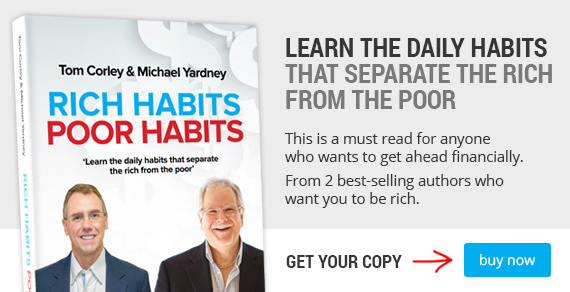
I’ve received numerous emails and comments requesting that I provide a list of recommended biographies. Before I do, I thought I’d share the daily routine that enables me to do my daily reading.
DAILY BOOK-READING ROUTINE
- Wake between 3:30am – 5am.
- Read for 20 minutes at desk in home office during workweek. During weekend: 30 – 60 minutes.
- Read for 5-10 minutes on toilet – I keep 2 or more books in my bathroom for this purpose.
- Listen 90 – 120 minutes to audiobooks while commuting to and from my CPA job. I subscribe to Simply Audiobooks. My subscription = max of 2 audio books. I read one, then mail it back to them. They send me a new book in about 4 days. I also buy about 5-10 audio books a year from Barnes and Noble or Amazon. I will go through 1-2 audio books a week. I give each book about 30 minutes. If it sucks, I stop listening and return it immediately to get another book. 75% of the books I listen I return immediately. Don’t waste your time reading or listening to books that suck.
- Read 15 – 30 minutes at night, prior to sleep. 50% of the time, this = entertainment reading. My entertainment reading includes Science Fiction/UFO books/Pre-history books.
- I maintain a BOOK BINDER. In my BOOK BINDER I summarize every book worth summarizing. One to ten pages is the average. I do this for all of my books, but it is especially beneficial for the audiobooks that I return. It gives me a record of audiobooks I listen to which I must return. I stack my books to summarize. Once a month I spend about a week summarizing the books I’ve read.
- At last count, I own approximately 1,600 books. Some hardcopy, some audio.
- I read about 50 books a year. I listen to about 50 books a year.
BIOGRAPHIES I RECOMMEND
- THE LAST LION – WINSTON CHURCHILL
- SAM WALTON – MADE IN AMERICA
- RICHARD BRANSON – THE INSIDE STORY (MICK BROWN)
- TESLA (MARGARET CHENEY)
- CARNEGIE (KRASS)
- WINSTON CHURCHILL – AN INTIMATE PORTRAIT
- THE LAST AMERICAN – THE LIFE AND TIMES OF BENJAMIN FRANKLIN
- THE OUTSIDER (JIMMY CONNORS)
- THEODORE REX
- MORGAN (JEAN STROUSE)
- GANGIS KHAN – CONQUEROR OF THE WORLD
- EINSTEIN (RONALD CLARK)
- THE SAM WALTON STORY
- BE MY GUEST (CONRAD HILTON)
- GHANDI (FISCHER)
- THE UNIVERSE AND DR. EINSTEIN (LINCOLN BARNETT)
- JOHN ADAMS (McCULLOUGH)
- MAESTRO (WOODWARD)
- ELON MUSK (VANCE)
- GENERAL PATTON – A SOLDIERS LIFE (HIRSHON)
- IOCOCCA – AN AUTOBIOGRAPHY (IOCOCCA)
- COLUMBUS (BERGREEN)
- DUTCH
- NAPOLEON (MARKHAM)
- COOLIDGE (AMITY SHALES)
- CHURCHILL & ORWELL (THOMAS RICKS)
- COACH WOODEN AND ME (JABBAR)
- EINSTEIN – HIS LIFE AND UNIVERSE (ISAACSON)
- ALEXANDER HAMILTON (CHERNOW)
- BEYOND BASKETBALL – COACH K’S KEYWORDS FOR SUCCESS (MIKE KRZYZEWSKI)
- HIS EXCELLENCY – GEORGE WASHINGTON (JOSEPH ELLIS)
- ADAMS VS. JEFFERSON (FERLING)
- THOMAS JEFFERSON – THE ART OF POWER
- ALEXANDER THE GREAT AND HIS TIME (SAVILL)
- NAMATH – A BIOGRAPHY (KRIEGEL)
- REAGAN (H. W. BRANDS)
- FRANKLIN DELANO ROOSEVELT (JENKINS)
- TEH RISE OF THEODORE ROOSEVELT (EDMUND MORRIS)
- THE SOUL OF A BUTTERFLY – MUHAMMAD ALI
- STEVE JOBS
- THE FIRST TYCOON = THE EPIC LIFE OF CORNELIUS VANDERBILT
- EINSTEIN (ISAACSON)
- FOUNDING RIVALS (CHRIS DEROSE)
- ON WRITING (STEPHEN KING)
- RENEE DECARTES
- HARRY HOUDINI (SLOMAN)
- A LIFE OF RICHES – THE BIOGRAPHY OF NAPOLEON HISS (RITT & LANDERS)
- THE MATCH (FROST)
- SIR ISAAC NEWTON
- GALILEO’S DAUGHTER
- ONE NATION (BEN CARSON)
- LEONARDO DEVINCI
- PISTOL PETE
- MILTON FRIEDMAN – FREE TO CHOOSE
- THE ROAD TO SERFDOM (F. A. HAYEK)
- THE AMERICAN CREED – BIOGRAPHY OF THE DECLARATION OF INDEPENDENCE ( CHURCH)
- KEYNES HAYEK (NICHOLAS WAPSHOTT)
- LINCOLN (DAVID HERBERT DONALD)
- MARRIOT
- E=MC2 – A BIOGRAPHY OF THE WORLD’S MOST FAMOUS EQUATION (DAVID BODANIS)
- JOHN JACOB ASTOR – AMERICA’S FIRST MULTIMILLIONAIRE (MADSEN)
- THE LAST FOUNDING FATHER (UNGER)
- ST. THOMAS ACQUINAS (McINERNY)











